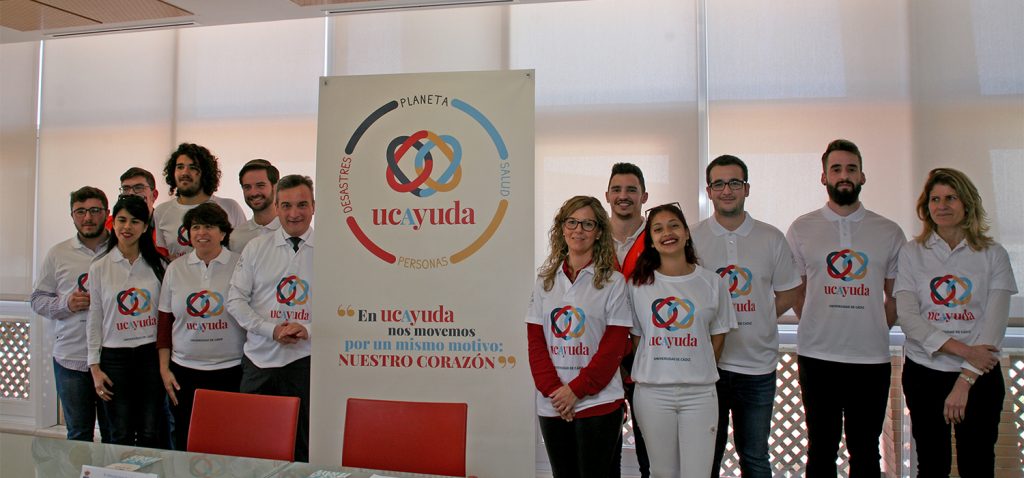UCA presents the network of collaborators ‘UCAYUDA’ for social and humanitarian matters 15 March 2019
It consists on putting volunteers from the university community at the service of social and solidarity groups in disaster matters, environmental care, personal and health care
The rector of the University of Cádiz, Eduardo González Mazo, accompanied by the delegate of the Rector of Humanitarian and Territorial Commitment, Professor María Rosa Durán, presented the UCAYUDA project in the meeting room of the Hospital Real building. The event was attended by teachers and students, representatives of entities and social groups and solidarity of the province, as well as media.
It is a novel network of collaborators of the university community in social and humanitarian matters, which begins to walk with the spirit and will to involve the people that make up UCA ecosystem. Around 25,000, among students, faculty, researchers and administration and services staff of its four campuses. Those interested in participating can do so from a form on the web https://ucayuda.uca.es
A project that encompasses cross-cutting work, which is carried out at the University of Cádiz by the Vice-Rectorships for Social Responsibility, Cultural Extension and Services, Students and Teaching Resources and Communication, among others. And that it is led by a committed and close person, “with a lot of empathy with the students”, in the words of González Mazo, who has recently promoted, from UCA and the Hospital of Jerez, a research and social action project, Recaída cero, to fight against childhood leukemia from the field of Mathematics
Mª Rosa Durán has announced that UCAYUDA will form teams to take action before an emergency call or programmed by the entities that need it in the face of real humanitarian and territorial problems. They will work from four areas: Disasters (actions related to natural and humanitarian disasters), Planet (protection and care of beaches, reforestation of forests, subject energy resources, and strategies to reduce plastics or paper, etc.), People ( help the most vulnerable: homeless, elderly, social dining, immigration …) and Health (psychological care in the face of disasters, accompaniment of patients, donation of blood and marrow or recreational activities for hospitalized children). The four teams “connected, we are a very large and varied community, we can contribute many things to society, our province and environment.”


